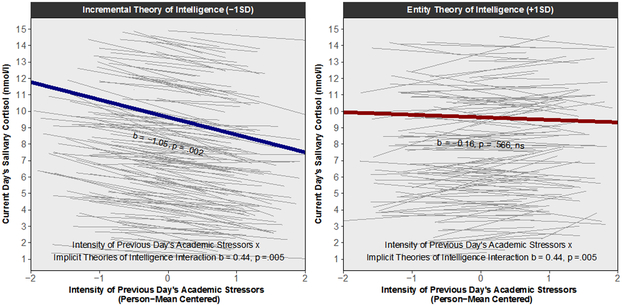Figure 3. Adolescents With an Incremental Theory of Intelligence Showed Less Lingering Effects From Yesterday’s Academic Stressors (Part 2).
Note: An exploratory random slope and intercept model in R estimated within-person associations between the intensity of previous day’s academic stressors (level 1, day level predictor) and the current day’s salivary cortisol levels (level 1, day level outcome), moderated by implicit theories of intelligence (level 2, person level moderator). Gray lines illustrate person-specific random slopes of the intensity of previous day’s academic stressors (t-1) predicting the current day’s (t) salivary cortisol levels. The thicker blue line indicates the group average fixed-effect slope estimated at −1SD (incremental theory of intelligence, left panel), whereas the thicker red line indicates the group average fixed-effect slope estimated at +1SD (entity theory of intelligence, right panel), b = unstandardized coefficient.

